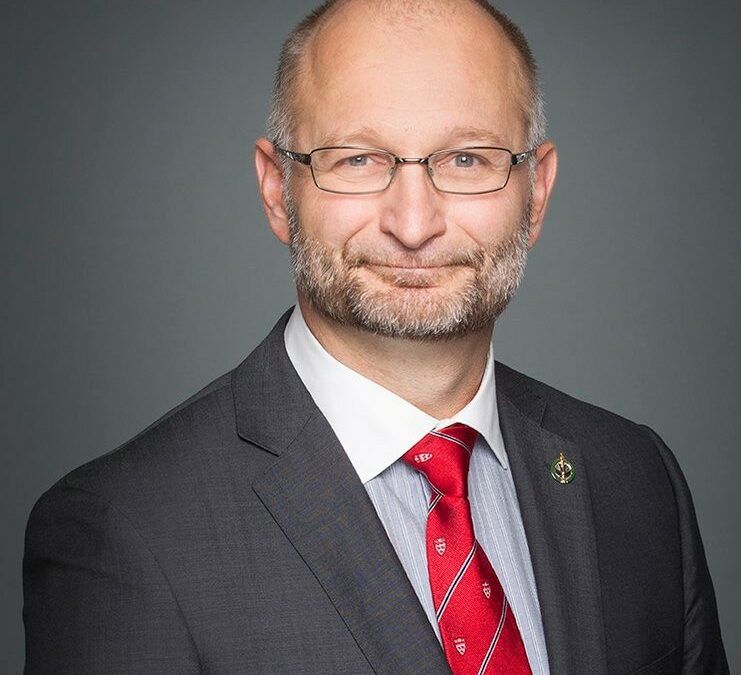Photo of Federal Justice Minister David Lametti
There are two points that Assembly of First Nations chiefs and federal Justice Minister David Lametti agree on when it comes to the draft national action plan for Canada’s United Nations Declaration on the Rights of Indigenous Peoples Act: It is not perfect, and it will be presented to Parliament by the June 21 date set by Canada.
The draft plan identifies priorities and key actions on how to advance implementation of Canada’s UN Declaration Act. The act became legislation in June 2021.
On April 6, on the final day of the four-day special assembly in Ottawa, chiefs passed an emergency draft resolution that endorsed the deadline while pushing for more funding to allow for further consultation with First Nations so they can present meaningful amendments to the plan when it is revisited annually.
Lametti, who addressed chiefs on April 5, referred to the action plan as one of a number of “evergreen documents” that Canada has committed to making amendments to on an annual basis.
He said he understood there was an urgency to bring about change that would address the legacy of discrimination, but patience was also needed “because these are large transformative steps that we are taking together with implications for First Nations across the country.”
Lametti insisted that the work Canada was undertaking was in collaboration with First Nations.
However, when chiefs and technicians presented their regional reports later in the day, many questioned how transformative Canada’s UN Declaration Act would be and the role Canada was playing in leading the implementation of the declaration.
Sarah Toole, government lead for Mi’kmaq Rights Initiative in Nova Scotia, said the draft action plan was maintaining the status quo.
Chief Sacha Labillois of the Eel River Bar First Nation in New Brunswick agreed.
“The Peace and Friendship Treaties did not cede any claims to our lands. The Crown has failed to live up to the intentions of the Peace and Friendship Treaties for 200 years. I am very disappointed to see that (the United Nations Declaration Act) follows this trend. And it continues to fail us. It fails to adhere to the Crown’s promises in the Peace and Friendship Treaties,” said Labillois.
Between 1725 and 1779, the Peace and Friendship Treaties were negotiated by Britain with the Mi’kmaq, the Maliseet, and other First Nations living in the Maritimes and Gaspe regions. These treaties, primarily designed to prevent war between enemies and to facilitate trade, contained no monetary or land transfer provisions but guaranteed hunting, fishing and land-use rights.
Labillois also pointed out that while the UN Declaration Act is not meant to prioritize modern treaties over historic treaties, she needed to see that included as the act “mentions nothing about respecting or implementing our treaties.”
Saskatchewan Regional Chief Bobby Cameron said the act “will be flawed if it’s not coming directly from our First Nations. It will fail if it is not getting direct input from our First Nations.”
The resolution passed by chiefs-in-assembly made a clear distinction between First Nations and other Indigenous groups and organizations.
It called for Canada to consult and cooperate with “First Nations title and rights and treaty right holders.”
“Our rights could be in jeopardy,” said Chief R. Donald Maracle of the Mohawks of the Bay of Quinte. “There should be a separate process for the treaty holders. We should not be lumped in with the Métis and other groups who are not rights holders.”
The resolution also called for transparency from the Department of Justice, which is leading the process.
In a March 2023 document prepared by Justice and encapsulating what they learned from consultations and presentations, the department notes that 149 Indigenous “partners” were funded to carry out consultations. Chiefs are asking for access to all the proposals Justice reviewed to determine, in part, who those “partners” were and what their perspectives are.
The resolution also calls for an oversight body consisting of representatives from First Nations and the government.
British Columbia Regional Chief Terry Teegee, co-chair of the adhoc chiefs committee on the UN Declaration Act national plan, said it was “disappointing” to read the first draft. But he also told chiefs that they couldn’t afford to lose the opportunity to move forward on implementing the United Nations Declaration.
“I really believe that there’s going to be positive steps forward, that there will be many fights ahead, even during this discussion on the action plan. It’s going to be even more so when we try to implement and align many of these laws,” said Teegee.
BC is the only province to have passed legislation enacting the UN Declaration. Teegee said First Nations there battled to align many of that province’s “genocidal, colonial laws” with the United Nations Declaration.
Pine Creek First Nation Chief Derek Nepinak said the United Nations Declaration Act “puts a new tool in our tool belt.”
“The document is very important for us to move forward,” said Gull Bay First Nation Chief Wilfred King, who brought forward the emergency resolution calling for the government to proceed with the national action plan.
The resolution passed with only one chief in opposition.
By Shari Narine, Local Journalism Initiative Reporter, Windspeaker.com
